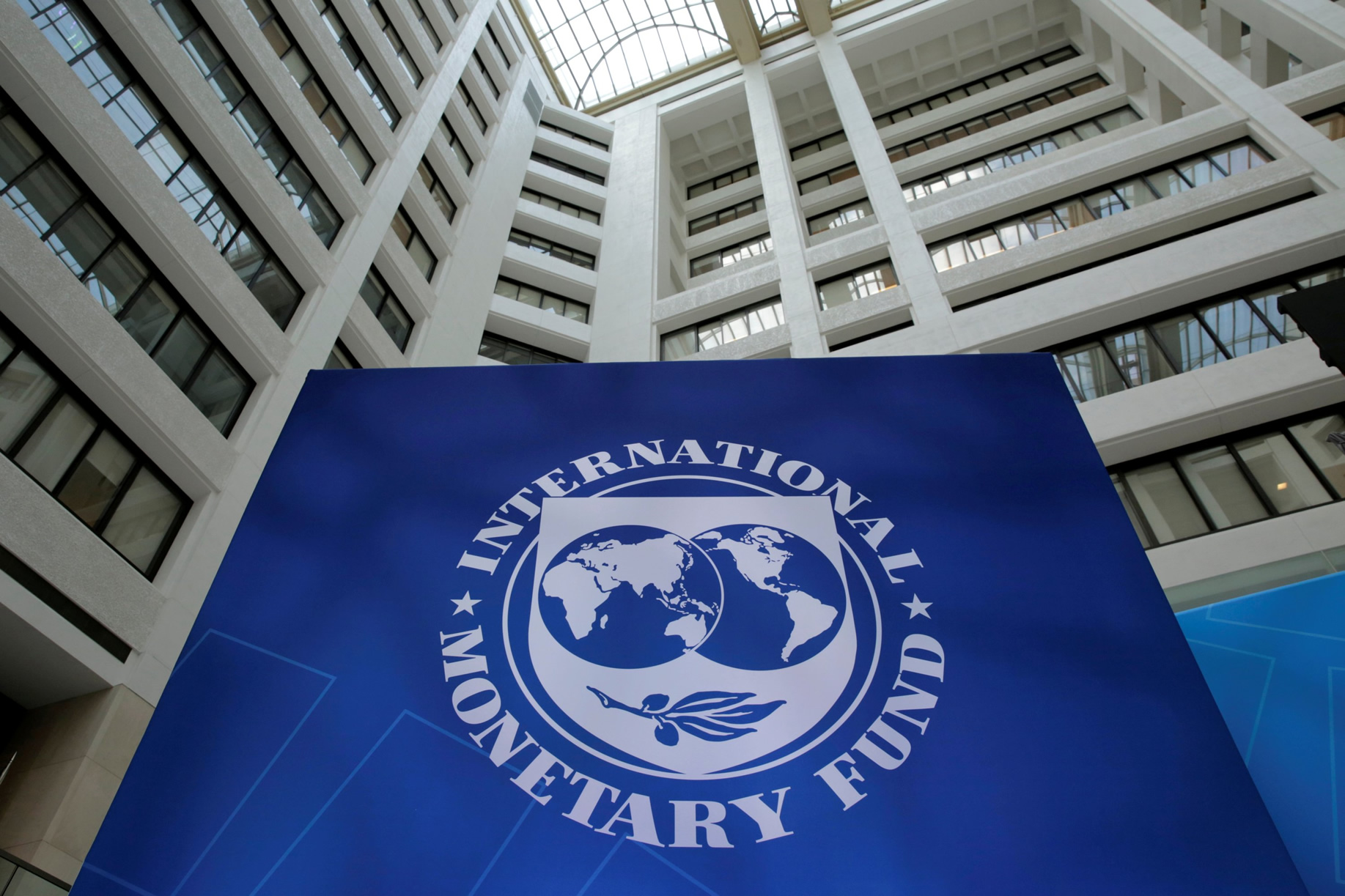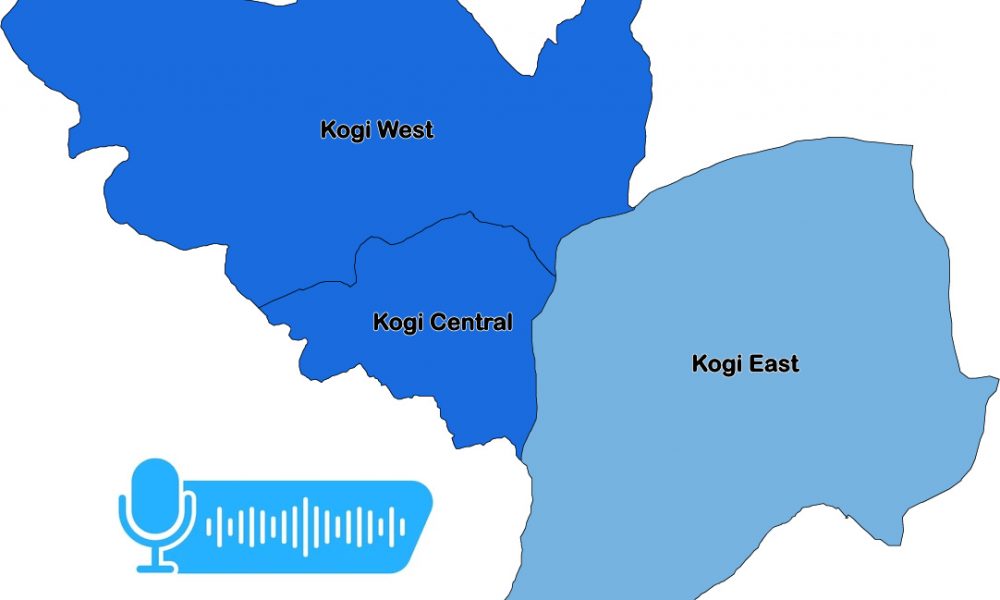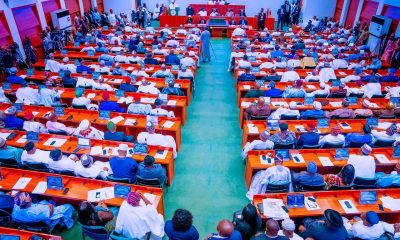Business and Economy
See why you should not partake in online fraud

Nigeria Senate on Thursday considered a bill to provide enabling framework that would legalize all forms of electronic transactions undertaken in Nigeria.
The bill, if passed and signed into law, will prohibit and criminalize online fraud, and also make it legally possible to admit evidence of electronic transactions between parties in court during proceedings. adsbygoogle || []).push({}); adsbygoogle || []).push({});
Sponsor of the bill, Senator Ibikunle Amosun (APC – Ogun Central), said the online transactions in the United States reached three trillion dollars in 2014 alone.
According to the lawmaker, online transactions account for well over ten trillion dollars in sales of goods and service globally.
Explaining the importance of enacting the necessary regime for electronic transaction in Nigeria, Amosun said that the European Union in the year 2000 approved a directive on electronic commerce which required member-states to implement same.
He added, “The United Kingdom passed the Electronic Communication Act 2000. Even our African neighbour, South Africa passed the Electronic Communications and Transactions Act, 25 of 2002.
“All the developed countries, including Malaysia, China, India, Brazil, Singapore, Japan, etc. have laws on electronic contract, and this has resulted into remarkable increase in their business transactions.
The lawmaker, however, lamented that Nigeria’s extant laws provide inadequate protection for e-commerce businesses and consumers in the country.
“Every day, we are involved in electronic contracting, either through the use of the Automated Teller Machine (ATM) to transact business or when we book our flight tickets online.
“These electronic transactions, which are the ones we can manage now, are not covered by our legal regime.
“How can we now talk of contracts running into billions of dollars between two machines programmed to process sales and purchase orders? Such complex transactions cannot be contemplated in our present circumstances.
“Yet, if we must tap into the global market, we must move with the trend of the market, we must move with time and have in place a legal framework that will deal with issues such as this,” Amosun said.
The lawmaker said that when the bill eventually becomes law, all challenges arising from jurisdiction and authentication in matters dealing wit contracts will be accordingly resolved.
“How can the contract be authenticated? How do we guarantee the integrity, non-repudiation, confidentiality, writing and signature within the electronic commerce environment?
“All these issues need to be resolved by legislation to boost our economy, encourage foreign investment and ease transactions.
“This Bill is aim to resolve these legal challenges by removing barriers to electronic commerce, while validating and effectuating electronic records and signatures,” Amosun explained.
Reeling out the benefits of the bill, the lawmaker said the piece of legislation when enacted, will among others, provide legal assistance to the consumers on their rights and legal remedies to all those who may be short-changed in electronic transactions.
He stated that it would also specifically provide for the prohibition and punishment of electronic crimes and fraud; and facilitate the use of all electronically generated information in the court of law for all civil transactions and validate the use of such information in contract and at the trial of cases in courts.
The bill, which scaled second reading during plenary, was referred by the Senate President, Ahmad Lawan, to the Committee on Banking, Insurance and Financial Institutions for further legislative work.
The Committee is chaired by Senator Uba Sani (APC – Kaduna Central) and is expected to submit its report in four weeks.
Author Profile

- Prince Abdulrahman Obaje is a Media, Information and Computer Technology Consultant. A quintessential Journalist, online marketer, social media strategist, Mathematician and Computer Scientist is based in Abuja, Nigeria. He is the Founder and the Publisher of The Informavores!. You can reach me on +234 805 939 5252 or send i-witness report directly to me on news@informavores.com.ng.
Latest entries
 ArticleApril 24, 2024Preventing Fire Outbreak in Solar Power System Installation – Engr Ohida
ArticleApril 24, 2024Preventing Fire Outbreak in Solar Power System Installation – Engr Ohida PoliticsApril 23, 2024Alleged 80.2 Billion Fraud: EFCC May Loose Case Against Yahaya Bello – Ambassador Danjuma
PoliticsApril 23, 2024Alleged 80.2 Billion Fraud: EFCC May Loose Case Against Yahaya Bello – Ambassador Danjuma NewsApril 11, 2024Eid-El-Fitr: ICDA North Central Coordinator Urges Muslim Faithfuls To Abide By Ramadan Lessons
NewsApril 11, 2024Eid-El-Fitr: ICDA North Central Coordinator Urges Muslim Faithfuls To Abide By Ramadan Lessons NewsMarch 20, 2024Investigative Journalists Group, NGIJ Hails Aderinokun on Appointment as Head of Media at Access Corp
NewsMarch 20, 2024Investigative Journalists Group, NGIJ Hails Aderinokun on Appointment as Head of Media at Access Corp
Business and Economy
IMF Predicts Drop In Global Economic Growth In 2023-24

The International Monetary Fund (IMF) has predicts that global economic growth is projected to fall from 3.5 per cent in 2022 to 3.0 per cent in both 2023 and 2024.
This is according to the IMF’s latest World Economic Outlook (WEO) Update Report for July 2023: “Near-Term Resilience, Persistent Challenges” released on Tuesday. adsbygoogle || []).push({}); adsbygoogle || []).push({});
The report said though the forecast for 2023 was modestly higher than predicted in the April 2023 WEO, it remained weak by historical standards.
“Compared with projections in the April 2023 WEO, growth has been upgraded by 0.2 percentage points for 2023, with no change for 2024.
“The forecast for 2023–24 remains well below the historical (2000–19) annual average of 3.8 per cent.
“It is also below the historical average across broad income groups, in overall Gross Domestic Product (GDP) as well as per capita GDP terms. ”
The report also said that advanced economies continued to drive the decline in growth from 2022 to 2023, with weaker manufacturing, as well as idiosyncratic factors, offsetting stronger services activity.
“For advanced economies, the growth slowdown projected for 2023 remained significant, from 2.7 per cent in 2022 to 1.5 per cent in 2023.
“About 93 per cent of advanced economies are projected to have lower growth in 2023, and growth in 2024 among this group of economies is projected to remain at 1.4 per cent.”
While the report said in emerging markets and developing economies, the growth outlook was broadly stable for 2023 and 2024, although with notable shifts across regions.
“For emerging market and developing economies, growth is projected to be broadly stable at 4.0 per cent in 2023 and 4.1 per cent in 2024, with modest revisions of 0.1 percentage point for 2023 and –0.1 percentage point for 2024.”
The report showed growth in Sub-Saharan Africa is projected to decline to 3.5 per cent in 2023 before picking up to 4.1 per cent in 2024.
It revealed that economic growth in Nigeria in 2023 and 2024 is projected to gradually decline, in line with April WEO projections, reflecting security issues in the oil sector.
The report showed that economic growth in Nigeria is projected at 3.2 per cent in 2023 and decline to 3.0 in 2024.
The report said Global headline inflation was expected to fall from 8.7 per cent in 2022 to 6.8 per cent in 2023 and 5.2 per cent in 2024.
“Underlying (core) inflation is projected to decline more gradually, and forecasts for inflation in 2024 have been revised upward. ”
It said inflation could remain high and even rise if further shocks occur, including those from an intensification of the war in Ukraine and extreme weather-related events, triggering more restrictive monetary policy.
The report said financial sector turbulence could resume as markets adjust to further policy tightening by central banks.
“China’s recovery could slow, in part as a result of unresolved real estate problems, with negative cross-border spillovers.
“Sovereign debt distress could spread to a wider group of economies.”
It, however, said on the upside, inflation could fall faster than expected, reducing the need for tight monetary policy, and domestic demand could again prove more resilient.
The report said in most economies, the policy priorities remained to achieve sustained disinflation while ensuring financial stability.
“Therefore, central banks should remain focused on restoring price stability and strengthening financial supervision and risk monitoring.
“Should market strains materialise, countries should provide liquidity promptly while mitigating the possibility of moral hazard.
“They should also build fiscal buffers, with the composition of fiscal
adjustment ensuring targeted support for the most vulnerable.
The report said improvements to the supply side of the economy would facilitate fiscal consolidation and a smoother decline of inflation toward target levels.
NAN
Author Profile
Latest entries
 NewsApril 18, 2024Alleged N80.2billion Money Laundering: EFCC Declares Immediate Kogi Ex-Governor Yahaya Bello Wanted
NewsApril 18, 2024Alleged N80.2billion Money Laundering: EFCC Declares Immediate Kogi Ex-Governor Yahaya Bello Wanted NewsNovember 6, 2023Another Massive Plan By APC To Rig Kogi Election Uncovered!
NewsNovember 6, 2023Another Massive Plan By APC To Rig Kogi Election Uncovered! Food and AgricultureAugust 1, 2023Food Security: FG Started The Distribution of Subsidised Farm Inputs to Small Holder Farmers
Food and AgricultureAugust 1, 2023Food Security: FG Started The Distribution of Subsidised Farm Inputs to Small Holder Farmers PoliticsAugust 1, 2023PEPC: PDP Atiku Appears As Parties Set To Adopt Written Addresses
PoliticsAugust 1, 2023PEPC: PDP Atiku Appears As Parties Set To Adopt Written Addresses
Business and Economy
Debt Servicing: Gombe State Govt Spent N33bn in 4 Years – Transition Report

- N6 billion for settlement of four years backlog of gratuities owed retirees from 2014 to 2017
The Gombe State Government has paid about N33billion from the N100bn debt inherited from the administration of former governor Ibrahim Dankwambo. adsbygoogle || []).push({}); adsbygoogle || []).push({});
The Chairman of the Gombe State Transition Management Committee, Dr Ibrahim Daudu, made this known while submitting the 2023 transition report to Gov. Inuwa Yahaya on Monday.
Daudu said that Gov. Yahaya also paid N6 billion to settle four years backlog of gratuities owed retirees from 2014 to 2017.
According to him, the payment to retirees is the largest payment of gratuity made by any government in Gombe State.
“During the course of our work, we were able to determine that out of over N100 billion in debt inherited from the previous administration, your administration has paid approximately N33 billion,” he said.
The chairman also stated that the state government within the period was able to attract N26 billion as a result of its prudent public financial management through the implementation of the State Fiscal Transparency, Accountability and Sustainability programme.
He said that in view of the state’s prudent resource management, Gombe State ranked fourth most successful state in public financial management in the country.
While commending Yahaya for effectively managing the finances of the state in spite of the huge economic challenges caused by COVID-19 and economic recession, the Daudu-led committee urged the government to boost the state’s internally generated revenue going forward.
The 11-member committee which was inaugurated on May 26 further advised the state government to within the next four years, reform the civil service while prioritising job creation.
The News Agency of Nigeria (NAN) reports that the major responsibilities assigned to the committee was to develop a blueprint for consolidating on the achievements made during Yahaya’s first administration.
Also, to incorporate lessons learned, identify priorities, policies, and programmes for the new administration.
Author Profile

- Prince Abdulrahman Obaje is a Media, Information and Computer Technology Consultant. A quintessential Journalist, online marketer, social media strategist, Mathematician and Computer Scientist is based in Abuja, Nigeria. He is the Founder and the Publisher of The Informavores!. You can reach me on +234 805 939 5252 or send i-witness report directly to me on news@informavores.com.ng.
Latest entries
 ArticleApril 24, 2024Preventing Fire Outbreak in Solar Power System Installation – Engr Ohida
ArticleApril 24, 2024Preventing Fire Outbreak in Solar Power System Installation – Engr Ohida PoliticsApril 23, 2024Alleged 80.2 Billion Fraud: EFCC May Loose Case Against Yahaya Bello – Ambassador Danjuma
PoliticsApril 23, 2024Alleged 80.2 Billion Fraud: EFCC May Loose Case Against Yahaya Bello – Ambassador Danjuma NewsApril 11, 2024Eid-El-Fitr: ICDA North Central Coordinator Urges Muslim Faithfuls To Abide By Ramadan Lessons
NewsApril 11, 2024Eid-El-Fitr: ICDA North Central Coordinator Urges Muslim Faithfuls To Abide By Ramadan Lessons NewsMarch 20, 2024Investigative Journalists Group, NGIJ Hails Aderinokun on Appointment as Head of Media at Access Corp
NewsMarch 20, 2024Investigative Journalists Group, NGIJ Hails Aderinokun on Appointment as Head of Media at Access Corp
Business and Economy
Euromoney Awards: GTBank Ranked Best Bank in Nigeria

Guaranty Trust Bank Ltd. has been ranked the”Best Bank in Nigeria” at the Euromoney Awards for Excellence 2023.
The bank said in a statement on Monday that the latest recognition underscored the bank as the leading financial institution in Nigeria. push({}); adsbygoogle || []).push({});
Announcing the award, Euromoney said: “Nigeria’s best bank, Guaranty Trust Bank, has continued to do a good job of convincing investors that it is better placed than its key competitors to deal with the risks ahead and perhaps to take advantage of opportunities in economic and policy transition.
“Despite a difficult operating environment, the bank continues to deliver exceptional results as the flagship franchise of Guaranty Trust Holding Company Plc.
“It recorded a profit before tax of N214.2 billion, pre-tax return on Equity (ROAE) of 23.6 per cent, and Cost to Income Ratio (CIR) of 48.0 per cent for the period ended, Dec. 31, 2022.”
Euromoney is an authority for global banking and financial markets and the annual awards for excellence, celebrates financial institutions that demonstrate leadership, innovation, and resilience in the markets they operate.
Commenting on the award, Mrs Miriam Olusanya, Managing Director of Guaranty Trust Bank Ltd., said, “we are honoured to be named the Best Bank in Nigeria by Euromoney.
“This recognition reflects our unwavering commitment to the values of excellence and innovation which form the bedrock of our value proposition as an institution and has guided the mother-brand to achieve remarkable success for over 30 years.
“As part of a thriving financial holding company, we will continue to prioritise service delivery and innovation whilst maintaining our strong financial performance,” she said.
Author Profile
Latest entries
 NewsApril 18, 2024Alleged N80.2billion Money Laundering: EFCC Declares Immediate Kogi Ex-Governor Yahaya Bello Wanted
NewsApril 18, 2024Alleged N80.2billion Money Laundering: EFCC Declares Immediate Kogi Ex-Governor Yahaya Bello Wanted NewsNovember 6, 2023Another Massive Plan By APC To Rig Kogi Election Uncovered!
NewsNovember 6, 2023Another Massive Plan By APC To Rig Kogi Election Uncovered! Food and AgricultureAugust 1, 2023Food Security: FG Started The Distribution of Subsidised Farm Inputs to Small Holder Farmers
Food and AgricultureAugust 1, 2023Food Security: FG Started The Distribution of Subsidised Farm Inputs to Small Holder Farmers PoliticsAugust 1, 2023PEPC: PDP Atiku Appears As Parties Set To Adopt Written Addresses
PoliticsAugust 1, 2023PEPC: PDP Atiku Appears As Parties Set To Adopt Written Addresses









